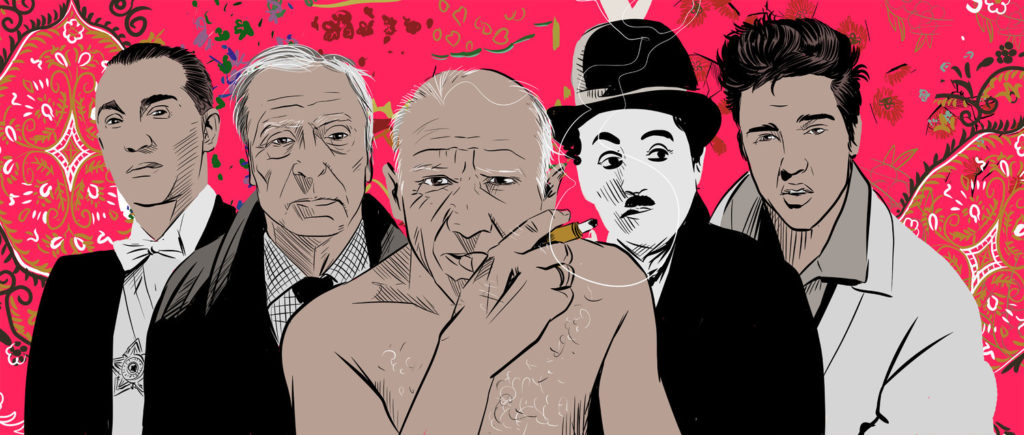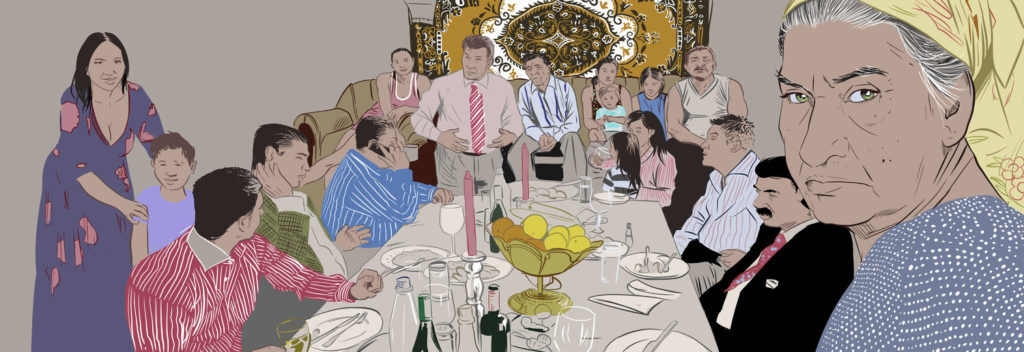
Today, on the 8th of April, we celebrate International Roma Day, devoted to Europe’s largest ethnic minority, the Roma[1]. This year’s celebration marks also the 50th anniversary of the First World Romani Congress, which was organized in 1971, in Orpington, near London, at which 8th April was declared International Roma Day.
by Viktoria Adamova
It is an opportunity to celebrate and remind ourselves of the culture, language, history and diversity of 10-12 million Roma people living in Europe who have contributed to and enriched the heritage of Europe and the world. For instance, Roma gifted the world many contributions; some of them are the famous Romani/Gypsy music, extraordinary Flamenco, and smith craft, as well as influencing mainstream fashion.
Did you know that Charlie Chaplin was of Romani origin, or that nearly every major popular music-guitarist in the world has been influenced by the first major jazz talent, Django Reinhardt, who was also Rom? These facts are very often not sufficiently acknowledged or not even linked to Roma.

Did you know that Charlie Chaplin was of Romani origin, or that nearly every major popular music-guitarist in the world has been influenced by the first major jazz talent, Django Reinhardt, who was also Rom? These facts are very often not sufficiently acknowledged or not even linked to Roma.
Today, it is also an opportunity to highlight the discrimination, prejudices, hate speech, and intolerance that Roma still face every day in all areas of their life, as well as the persecution they faced for centuries.
Similar to Afro-Americans in the United States, many Roma people are frequently facing racism in Europe. The racism against Roma often goes unnoticed or even becomes normalised. It has its origins in how the majority views and treats those considered “gypsies”, who have endured a process of historical “othering”, which builds on stereotypes, even unintentional or unconscious attitudes, that result in a still widely accepted form of racism against Roma.
Its various expressions include hate speech, discrimination, hate crime, and other harmful practices, resulting in many Roma people’s exclusion, segregation and poverty. It leads to a perception of Roma people as a homogenous group that is helpless, inferior and anti-social.

The racism against Roma often goes unnoticed or even becomes normalised. It has its origins in how the majority views and treats those considered “gypsies”, who have endured a process of historical “othering”, which builds on stereotypes, even unintentional or unconscious attitudes, that result in a still widely accepted form of racism against Roma.
Unfortunately, little effort has been made by national governments in order to lift Roma people from this precarious situation. This day is therefore a chance to remind European and world leaders to implement effective anti-discrimination measures and legislative and policy initiatives to protect and promote the human rights of all minorities, including Roma.
But responsibility rests not only on the shoulders of public authorities, but on all of us. We cannot allow desensitisation to divide us and put barriers between us. We need to let go of feelings such as ‘it is not my problem – it is poor people’s problems, it is women’s problems, it is Roma’s problems’. Because the fact is that we cannot do it alone. We cannot solve the issues and make people’s lives better unless everyone will contribute in some shape or form.

But responsibility rests not only on the shoulders of public authorities but on all of us. We cannot allow desensitisation to divide us and put barriers between us. We need to let go of feelings such as ‘it is not my problem – it is poor people’s problems, it is women’s problems, it is Roma’s problems.
Therefore, today, on the 50th anniversary of the International Roma Day, I would like to call on the national governments, EU and international institutions, civil society organisations, Roma people and the whole of society to spread awareness about the challenges that Roma face, educate about the Roma history, language, and culture and above all to actively act against antigypsyism and discrimination. Only when we are committed to working hand in hand, can we build communities that stand up against hate, treat each other with dignity and take every opportunity to spread kindness.
Only when we are committed to working hand in hand, can we build communities that stand up against hate, treat each other with dignity and take every opportunity to spread kindness.
- [1] The reference to ‘Roma’, as an umbrella term, encompasses a wide range of different people of Romani origin such as: Roma, Sinti, Kale, Romanichels and Boyash/Rudari. It also encompasses groups such as Ashkali, Egyptians, Yenish, Dom, Lom, Rom and Abdal, as well as traveller populations, including ethnic Travellers or those designated under the administrative term gens du voyage and people who identify as Gypsies, Tsiganes or Tziganes, without denying their specificities.

Viktoria Adamova is a 23-year-old Roma girl from Slovakia who is currently undertaking her traineeship in the Extremism Working Group for Socialists and Democrats in the European Parliament in Brussels. She graduated in BA International Relations from University of Essex in Colchester, UK. Together with her university classmates, she established a charitable university organisation called Goodwill, to help destitute children in India. Viktoria also has experience as an intern in the Office of Plenipotentiary of Slovakia for Roma communities. She also worked voluntarily for non-profit organisation Compas in Peterborough UK. She is interested in political affairs on both domestic and international scales, related to raising nationalism and far-right politics and marginalised groups such as Roma.
